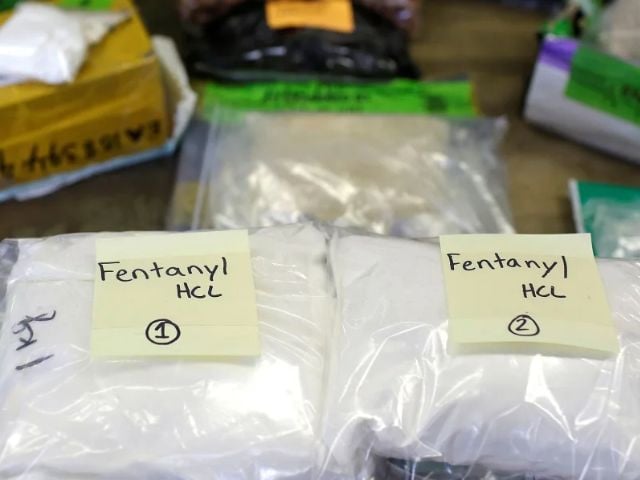-

-
-
Loading

Loading


India has emerged as an increasingly significant player in the illicit fentanyl trade, according to a new intelligence report from the United States. This report highlights concerns that are likely to resonate in New Delhi, especially as President Donald Trump uses tariffs to pressure countries he believes are not doing enough to stop the flow of fentanyl into the United States. Fentanyl, a potent synthetic opioid that is up to 100 times stronger than morphine, is now the leading cause of overdose deaths in the United States, contributing heavily to the ongoing opioid crisis. For years, China had been known as the primary supplier of both legal fentanyl for severe pain management and illicit precursor chemicals. However, according to the 2025 Annual Threat Assessment (ATA) report published by the Office of the Director of National Intelligence in March 2025, India's role in the illicit trade has been gaining prominence. The ATA report states: "Nonstate groups are often enabled, both directly and indirectly, by state actors, such as China and India, as sources of precursors and equipment for drug traffickers." It goes on to specify that while China remains the primary source of illicit fentanyl precursor chemicals and pill pressing equipment, India has now become the second-largest supplier, a shift that is raising eyebrows in both Washington and New Delhi. Fentanyl precursor chemicals are often processed in laboratories in Mexico before being smuggled into the United States. The report underscores that while China has long been the central source for these substances, India's pharmaceutical industry has increasingly come under scrutiny. India's pharmaceutical sector, one of the largest in the world, supplies a significant portion of the world's vaccines and medicines. The country is often referred to as the "Pharmacy of the World," but the industry has faced criticism for lax regulation and quality control, raising concerns about its potential involvement in the illegal drug trade. On March 17, India's Anti-Terrorist Squad (ATS) in the western state of Gujarat arrested two individuals linked to pharmaceutical companies in Surat for allegedly exporting fentanyl precursors to Mexico and Guatemala. This was followed by the US Department of Justice indicting three top executives from a Hyderabad-based pharmaceutical company for allegedly importing ingredients used to make illicit fentanyl. While the Indian government has not issued a public response to the ATA report, the timing of the document is especially delicate for New Delhi, which is currently trying to avoid US tariffs. In 2024, the United States was India’s largest trading partner, with nearly $120 billion in trade, although India only ranked tenth on the list of the US's global trading partners. The report's release adds to the complexities in the relationship between India and the United States, potentially intensifying trade tensions and triggering stronger rhetoric or even targeted tariffs. Indian economist and researcher Soumya Bhowmik suggests that the findings of the ATA report "may introduce complexities in India-US relations" and could lead to the imposition of tariffs. This concern is particularly pertinent after the Trump administration earlier this month enacted tariffs on its top three trading partners—China, Mexico, and Canada—to curb the flow of fentanyl into the United States. In February, Indian Prime Minister Narendra Modi visited Washington, where he held talks with President Trump on various issues, including defense, technology, and trade. Both leaders expressed their commitment to expanding trade and investment to strengthen their nations’ economies and create more resilient supply chains. The recent ATA report highlights the critical need for collaboration between the US and India to address the global opioid crisis. Soumya Bhowmik stresses that it is vital for both countries to work together to tackle the fentanyl problem while continuing efforts to mitigate the impact of potential US tariffs on Indian industries. India’s proactive measures, including a proposal to eliminate import duties on essential manufacturing goods, have been seen as efforts to reduce the risk of strained trade relations with the US.
if you want to get more information about this news then click on below link
More Detail